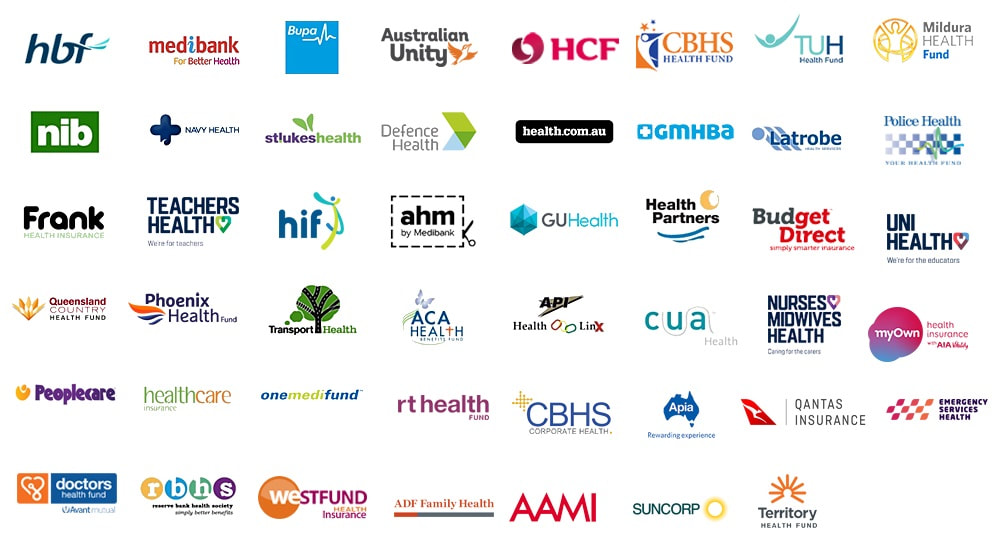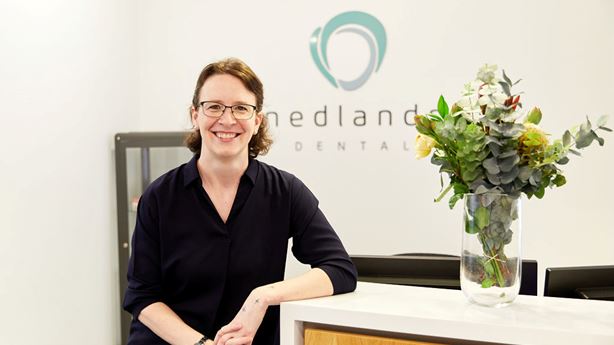How often should I go to the dentist?
Regular trips to your dentist should be part of your care routine, even if you take great care of your teeth and gums at home.
Many dental problems aren’t painful or visible until they are quite advanced. Regular dental visits allow your dentist to identify signs of disease (such as gum disease, cavities or oral cancer) early on.
Most people should visit the dentist every 6 months. You will need to see your dentist more frequently if you are:
- A smoker
- Diabetic
- Currently suffering from gum disease
- Prone to weak immune response to bacteria infections
- Prone to cavities and plaque build up
Your dentist will advise you as to how often you need to come in for a check-up. It is normal for this to vary as your lifestyle and health change throughout life.
Why do I need X-rays?
Dental x-rays (or dental radiographs) are all about prevention and minimising treatment.
Dental x-rays are taken to check the structure of your teeth, as it cannot be seen visually during a clinical examination. They allow us to check for decay and sometimes, if noted at an early stage, we can implement treatment that avoids the need for a filling. X-rays are also important in checking for more specific problems such as assessing bone loss in patients with gum disease, checking for pathology, and assessing the position of un-erupted adult teeth.
How often a dental x-ray will need to be taken will depend on the patient and their risk conditions for dental disease. Digital dental x-rays use very small radiation doses, and we never take x-rays unless they are necessary.
Why do I need a crown instead of a filling?
A crown is an artificial restoration, which fits over the remaining part of a tooth making it stronger and restoring its natural shape.
Often if a tooth has a very large filling it will be structurally weakened, and restoring it with a crown before it starts to break down will give you the best chance of a long term predictable outcome, minimising the need for more expensive treatment in the future.
There are also other indications for crowns that you can discuss with your dentist.
What is periodontal disease (gum disease)?
One of the main factors causing periodontal disease is the bacteria which hide in the plaque and tarter on and around your teeth, often under your gums.
In most cases patients are unaware that their gums are unhealthy, as there may be few or no symptoms. If left untreated, gum disease can lead to irreversible bone loss around your teeth, which then can become loose and fall out.
We regularly screen our patients for gum disease and follow a strict protocol that, in the main, results in a good outcome for our patients.
Why am I seeing a hygienist for my scale and clean?
Your dental hygienist is specially trained in the cleaning and maintenance of teeth and gums, your scale and clean is part of this care. Our hygienists work collaboratively with our dentist to ensure you are getting the best care for your teeth.
My dentist has advised fissure sealants. What is a fissure sealant?
A fissure sealant is a safe and pain-free way to help prevent tooth decay, it involves putting a thin plastic coating over the grooves of a tooth. Some people have naturally deeper grooves in their teeth, which are difficult to clean making them more susceptible to decay. By putting a fissure sealant over the tooth, the deep grooves are protected and the tooth is less likely to become decayed.
Fissure sealants can be put on by your dentist or hygienist during a regular dental appointment. They require no drilling and no injections.
At what age should my child first see a dentist?
At Nedlands Dental we welcome children of any age, whether they have teeth or not, but as soon as their first tooth starts to come through, we recommend you bring them along for an appointment. We can then give you all the information you will need to keep their mouth healthy.
A dental practice is an unfamiliar environment for many children, and by giving them a chance to get familiar and comfortable with their environment, we can help them feel confident and relaxed when their teeth start to come through and they begin their regular check ups.
Your children are never too young to learn about preventative dental care.
My partner says I grind my teeth at night, does it matter?
The medical term for grinding your teeth is bruxism, which has become increasingly common in our patients. There are many factors that can cause bruxism, one of these is stress, which is commonplace in our modern fast-paced life.
Bruxism can cause a lot of damage to your teeth and jaw. It wears the teeth down, and can result in cracks that, in the worse scenario, sometimes can be so bad that teeth need to be extracted. This can impact on appearance and can also cause pain in the muscles and joints in the jaw and mouth.
Treating bruxism can be very straightforward and pain free. After examining you we can discuss what the best course of action will be in your case.
Does Nedlands Dental participate in the Child Dental Benefits Schedule?
Yes. Looking after teeth from a young age is very important to long-term dental health so we are happy to be involved in this program.
We bulk bill patients who are eligible for the Child Dental Benefits Schedule. This can include services such as:
- X-rays
- Fluoride treatment
- Scale and clean
- Fissure sealing
- Oral hygiene instruction
To find out if you are eligible for the Child Dental Benefits Schedule, go to the Department of Human Services website.
Why are my gums bleeding?
There are many things that can make gums bleed, a thorough examination by your dentist is the only way to identify the cause and get the right treatment.
Gums often bleed because they are not healthy due to a build up of bacteria and plaque, however sometimes there are other underlying problems.
If your gums are bleeding then you should make an appointment with your dentist so they can diagnose the cause in your case.
What is tooth whitening? And do I need it?
Tooth whitening is the process of making your teeth lighter and helps to remove stains and discolouration.
There are two main ways of doing this at Nedlands Dental: with in-office whitening or take home whitening. The in-office whitening is the preferred method as its quicker, often only taking one hour, however the take home whitening will achieve the same result, but takes a couple of weeks.
If you are interested in whitening, talk to your dentist to see if it is appropriate in your case.
We accept all Major Health Funds and Medicare dental schemes


